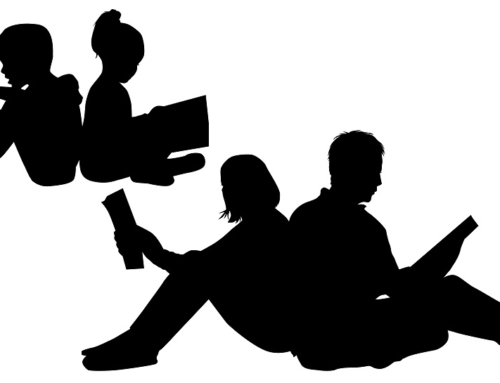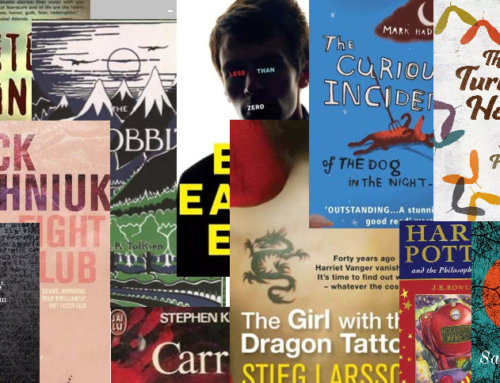Diane Stockwell joined The Editorial Department in the spring of 2020 and is now available to consult with authors in the later stages of readying manuscripts for publication and submission to agents and publishers. We’re delighted to have her aboard and to share this brief Q&A with her.
What single word comes to mind to define the state of traditional publishing today?
Evolving.
What do you see as having changed most in the industry since you began your publishing career twenty-five years ago?
The rise of Amazon has had a tremendous effect on the industry, for publishers, booksellers, and readers in general—for better or worse.
The first major shift I observed as a publishing professional was the growth of book chains like Barnes & Noble and the very real threat they posed to independent booksellers—this was on bold display as one wonderful bookstore after another went out of business here in NYC. In 1950 there were 386 bookstores in Manhattan; by 2015 there were just 106, according to Gothamist. But then Amazon came along, and the rise of e-commerce and digital publishing represented a far more radical change in the industry. Now readers do not have to leave the comfort of their couch to purchase just about any book out there, and this can be viewed as a wonderful thing. I own a Kindle and love the convenience of being able to browse through thousands of books, choose one to buy, and start reading it from my bed at ten o’clock that night. But for publishers and authors, the fact that Amazon sells used books right alongside new books and in fact encourages consumers to sidestep paying the author and publisher altogether is deeply troubling to me. I never buy used books!
Amazon began as a bookseller and expanded to sell anything and everything under the sun around the world, and now they are also a global publisher with several imprints. This has its positives and negatives. As an agent and translator, I was very wary of having anything to do with Amazon as a publisher. But after translating a book for them and selling a book to their translation imprint that no traditional publisher would touch, my view of Amazon has changed. Unlike most traditional publishers who are generally very reluctant to publish translations, much less pay a respectable fee with royalties, and are staffed almost entirely by monolingual editors, Amazon sees the value of a great story no matter who writes it, or in what language, and they are eager to seize the opportunity to reach global audiences. They are using their data to help them figure out which books could travel. So I commend them for that. They have also revolutionized the self-publishing landscape, really empowering writers to successfully publish their books, retain control over their work, and act completely independently of corporate publishers. Many savvy authors have figured out how to market themselves and build a readership on their own, and that has been a wonderful development. While I believe there will always be a role for “gatekeepers”—traditional publishers—now there is a legitimate alternative, the stigma of self-publishing has largely disappeared, and this can only be a plus for both successful professional and aspiring writers.
But their business model and worth as a retailer of “stuff” greatly overshadows their publishing business, to the detriment of the interests of a free press, and that is worrisome.
What’s the best book you’ve read in the past year that you didn’t work on?
Catch and Kill, by Ronan Farrow. He’s a tremendously talented, smart reporter, and he did a fantastic job weaving the facts here into a highly compelling and suspenseful narrative. The story of NBC’s cover-up of the Weinstein story is outrageous yet not surprising. Of course, Farrow could hardly have wanted Weinstein to hire an Israeli spy company to follow him around, but having one of those spies turn and become a “good” guy, standing up for truth, justice, and the American way, gave him a terrific suspense story within the story. It’s an amazing book, and the podcast was fantastic, too.
Another highlight of my reading year was Bad Blood: Secrets and Lies in a Silicon Valley Startup, by John Carreyrou. This was also a work of excellent reporting and unravels a complicated story with a fascinating, somewhat deranged person at its center. Just as interesting as Elizabeth Holmes herself is just how easily powerful and otherwise seemingly intelligent people around her were so quickly and easily convinced of her mostly fictitious business plan, and willing to throw money at her. She had pretty blond hair, a carefully modulated, unnaturally deep voice throwing around scientific-sounding buzzwords, and dressed like Steve Jobs. That’s all it took.
How do you think of your own role when editing an author’s work?
I see my role as helping to clarify, refine, and elevate the author’s voice without changing its essence. I also evaluate a manuscript for structure and pacing, which is very important to attract a readership no matter what you’re writing—the facts may be there, but the story has to be compelling and well-paced, even for nonfiction. In my “other life” I’m a musician, and an ear for rhythm is just as important when it comes to language and writing.
Interested in working with Diane? Click here to introduce your project to her and find out if she thinks she can help.







